Python Automation Jobs
Delving deeper into the landscape of Python automation jobs, this section aims to provide a comprehensive understanding. Noting the surge in demand for Python automation professionals and the significance of Python in automation, two primary aspects emerge: a brief overview of Python automation and the growing demand for Python automation jobs.
Python automation refers to the utilization of Python programming to automate routine tasks, optimize workflows and execute complex processes effortlessly. This technique plays a pivotal role in numerous sectors such as data analytics, web development, machine learning, and many others due to Python’s simplicity, readability, and vast libraries.  For instance, Python’s powerful library, Pandas, aids in the handling and analysis of large datasets, hence accelerating data processes. Additionally, Python’s scripting abilities allow it to automate mundane tasks like file manipulation, thereby saving considerable time.
For instance, Python’s powerful library, Pandas, aids in the handling and analysis of large datasets, hence accelerating data processes. Additionally, Python’s scripting abilities allow it to automate mundane tasks like file manipulation, thereby saving considerable time.
The burgeoning demand for Python automation jobs is, in part, a result of Python’s role in business optimization. Companies now seek professionals proficient in Python automation to drive efficiency and innovation. In fact, according to a report by Indeed, job postings relating to Python automation have seen an increase of about 45% in the last 3 years, highlighting the growing demand. Aligning with this trend, professionals with a deep understanding of Python automation often enjoy a competitive edge in the job market, opening opportunities across industries and job roles. Python automation experts are desired in various sectors, such as finance, technology, health care, and more, underscoring their cross-industry appeal.
Key Skills Required for Python Automation Jobs
In the emerging reality of Python automation, certain skills stand out as crucial. Mastery over these abilities can significantly improve a professional’s attractiveness to potential employers.
Deep understanding of Python libraries is paramount. These libraries, which specifically target automation tasks, simplify the coding process. For instance, Selenium handles web driver activities, while BeautifulSoup aids in web scraping. The requests library optimizes HTTP requests, making it easier to interact with web services, while Pandas assist with data manipulation and analysis. The adept use of such libraries conditions a more effective, streamlined performance in Python automation jobs.
The requests library optimizes HTTP requests, making it easier to interact with web services, while Pandas assist with data manipulation and analysis. The adept use of such libraries conditions a more effective, streamlined performance in Python automation jobs.
Proficiency in software testing and debugging forms another cornerstone for success in Python automation roles. Professionals benefit from skills in frameworks like PyTest or UnitTest. These frameworks facilitate the making and testing of code that is clean, well-structured and easily maintainable. Debugging is closely related to testing. A keen aptitude for identifying, tracing and fixing errors or bugs in code lends a decisive edge in the high-pressure environment of Python automation. Essentially, the ability to thoroughly test and debug code ensures fewer errors and a higher-quality end product, further enhancing one’s competitive profile in Python automation jobs.
How to Get Hired for Python Automation Jobs
Seeking employment in Python Automation? It’s key to build a strong, competitive profile. It’s crucial to acquire relevant certifications and procure hands-on experience. This section delves
Pursuing certifications provides a testament to your Python automation expertise. Acquiring focused, recognized certifications distinguishes Python professionals in the crowded job market.
- Python Institute’s Certified Entry-Level Python Programmer (PCEP) – Validates the candidate’s understanding of Python’s principles and coding skills.
- Microsoft Python Certification (98-381) – Assesses knowledge of Python syntax, data types, and understanding of Python functions.
- Certified Associate in Python Programming (PCAP) – Confirms proficiency in coding tasks related to the basics of programming in the Python language and the fundamental notions and techniques used in object-oriented programming.

- Professional in Python (PP) from the Python Institute – This certificate validates the candidate’s ability to accomplish coding tasks related to advanced programming in the Python language, text file processing, communicating with a database, network programming, and Python GUI programming.
Amassing practical experience aligns directly with enhancing employment prospects. Internships and projects provide this much-needed practical exposure.
- Internships: Participation in internships helps acquire job-specific skills and build professional relationships. Examples include Python Automation Intern or Python Development Intern roles at tech firms, start-ups, and corporates.
- Projects: Taking up Python automation projects allows for an understanding of real-world problems and their solutions. These could include developing an automated social media posting tool, a web scraping application, or an automated email sender. Pushing such projects on GitHub makes your work visible, showcasing your technical Python skills to potential employers.
As in any profession, the journey to becoming a Python Automation professional requires a combination of the right credentials and practical exposure. Each step enhances your visibility and proficiency, taking you closer to your goal of landing a desired Python Automation job.

